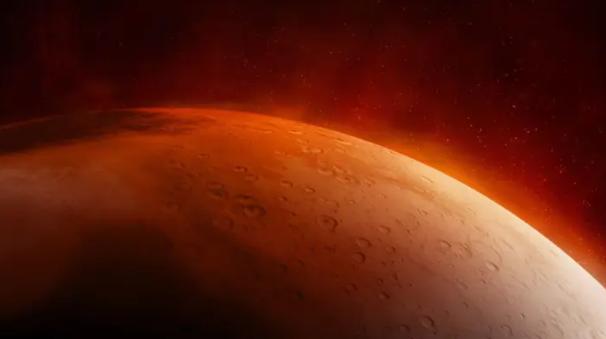
The natural environment of Mars is very complex, its atmosphere is mainly composed of 95.32% carbon dioxide, 2.7% nitrogen, 1.6% argon, 0.13% oxygen and 0.08% other gases, and the temperature difference between day and night can reach 60 degrees Celsius. Based on these properties, a team led by Professor Tan Peng and postdoctoral researcher Xiao Xu from the University of Science and Technology of China has developed a new "Mars battery" with high energy density and long cycle performance, which is expected to play an important role in Mars exploration. The innovation of the battery is that it can directly inhale the Martian atmosphere as fuel during discharge, significantly reducing the overall weight of the battery and making it more suitable for carrying in space. After the battery is depleted, it can be recharged using solar energy on the Martian surface to prepare for the next use. In addition, the research team has successfully implemented a "Mars battery" system that can continuously output electricity by simulating temperature fluctuations on the Martian surface.
First, the battery, once depleted, can be recharged using solar energy collected from the Martian surface to prepare for subsequent discharges. The team also simulated extreme conditions on the surface of Mars, including dramatic changes in temperature, to develop a Mars battery system that could continuously output electricity. The charging and discharging process involves the formation and decomposition of lithium carbonate, while trace amounts of oxygen and carbon monoxide in the Martian atmosphere act as catalysts for the reaction, accelerating the conversion of carbon dioxide. By optimizing electrode preparation and battery structure design, the team greatly increased the effective area of the reaction in the Martian atmosphere and expanded the size of the battery to 4 square centimeters, further increasing the energy density of the soft-pack battery to 765Wh/kg and 630Wh/L.
Meanwhile, Chinese scientists say they have successfully developed a lightweight rechargeable battery specifically for Mars exploration. The battery not only uses the Martian atmosphere directly for power, but also has the ability to operate in extreme temperatures. According to research published in the journal Science Bulletin, the battery operated sustainably at 0 degrees Celsius (32 degrees Fahrenheit) for more than 1,350 hours, equivalent to almost two months on Mars. The researchers' goal is to ensure that the battery can cope with the 60-degree Celsius temperature difference between day and night in the Martian environment to evaluate its electrochemical performance in harsh conditions.
Finally, the development of Mars batteries aims to challenge the lithium-ion battery monopoly used by the U.S. Soena mission from 1997 to China's Zhurong mission from 2021. It works like a fuel cell, converting energy into electricity through a chemical reaction. Just as hydrogen and oxygen fuel cells use hydrogen to produce energy, Mars batteries use carbon dioxide, oxygen, and carbon monoxide in the Martian atmosphere as fuel. The team said that the Mars rover and other equipment will be powered by portable lithium-ion batteries, large solar panels and nuclear batteries. The power system of the Mars rover will continue to rely on multiple energy sources, and the Mars battery is designed to provide additional power options, rather than replace existing energy sources.
Taken together, this study provides an important proof-of-concept for the practical application of the "Mars battery" in the Martian environment. In the future, the team plans to develop a solid-state Mars battery based on this to solve the problem of electrolyte volatilization at low pressure, and to support heat and air pressure management systems. This work lays the foundation for a multi-energy complementary system in future space exploration, and subsequent research will further promote the development of solid-state "Mars batteries" to provide more energy options for future space exploration.

The United States announced on Monday its commitment to provide 1.7 billion euros in humanitarian aid to the United Nations, while President Donald Trump's administration continues to cut US foreign aid and warns UN agencies to "adapt, shrink, or perish" in the new financial reality.
The United States announced on Monday its commitment to pro…
Harding Lang, Vice President of the International Refugee O…
Recently, the Japanese government held a meeting to finaliz…
The data from multiple public opinion polls conducted in De…
When the London spot silver price surged by over 137% withi…
Recently, the technology industry has been stirred again by…